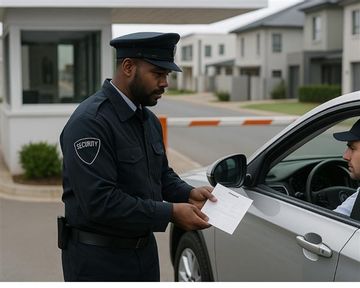Mandatory disclosure forms for rental properties - what you need to know
Navigating the rental property market can be a complex endeavor for both landlords and tenants. A crucial aspect of this process is the Mandatory Disclosure Form, a document that provides a detailed summary of a property's current condition and any known defects.
What is a mandatory Disclosure Form?
Mandatory disclosure forms are a summary of a rental property’s current condition, with a list of all known property defects. This form needs to be compiled by the landlord, to the best of their knowledge, and must be submitted to the rental agent at the time of signing the Mandate Agreement.
What a disclosure form is not is a comprehensive list of repairs that have to be rectified by the landlord. Unless the defects are listed - and agreed to - in writing to be rectified, the landlord is under no obligation to remedy anything listed on the form.
It is also important to remember that these mandatory disclosure forms do not replace a thorough ingoing inspection by the tenants and rental agent. As most landlords do not live in their rental properties, they can only disclose defects that they are aware of and thus rely on information that they have received from previous tenants or their rental agent. Ingoing and outgoing inspections remain vitally important to cover both agent, landlord, and tenant.
We suggest that landlords have a home inspection done by a third party if necessary - this will allow for a comprehensive inspection that will help everyone involved have a clear picture of the condition of the property.
What information should be included in a Mandatory Disclosure Form?
Guidelines state that Mandatory Disclosure Forms should include (but not be limited to) the following:
- Any known, material property defects, such as leaks, damp, or faults in electrical/plumbing/swimming pools/pumps/air conditioning etc.
- Details on any repairs conducted in the last 12 months, or repairs that are still under guarantee/warranty.
- A full list of any items not in working order, including plug points, doors, windows, appliances, security systems etc.
- A list of items that will need to be repaired before occupation.
- Any applicable details of Homeowners’ Associations or Bodies Corporate.
- Whether the property is fitted with a prepaid electricity meter, and details of any outstanding municipal rates and levies.
- The signature of the landlord, tenant, and rental agent (where applicable).
What are the consequences of not having a Mandatory Disclosure Form?
If there is no signed Mandatory Disclosure Form as part of the lease agreement, the law will assume that no defects were disclosed to the tenant. Both landlords and their rental agents could face serious fines if they are found to have neglected their disclosure obligations.
The Rental Housing Tribunal takes tenant rights very seriously, and that includes the right to make fully formed rental decisions.
What are the benefits of Mandatory Disclosure?
The benefits are quite obviously the protection it offers to all the parties involved. For tenants knowing beforehand what exactly they are getting into, allows them to make informed decisions so that they can enjoy their rental property, while for landlords the benefits go beyond just the legal aspect.
Knowing exactly the condition of your property means that you can have an up-to-date list of problems or potential problems - which in turn will help you plan your maintenance schedule and give you time to budget for all the tasks that need to be completed. A well-maintained rental property will also find tenants much quicker, meaning your return on investment is much higher than a property that needs a ton of work. Your property’s market value performance will also be better once you do decide to sell.

